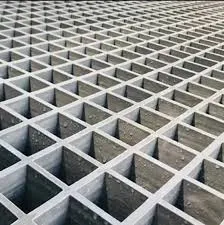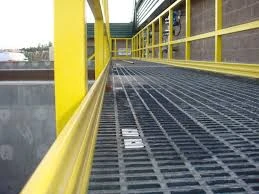
-
 Afrikaans
Afrikaans -
 Albanian
Albanian -
 Amharic
Amharic -
 Arabic
Arabic -
 Armenian
Armenian -
 Azerbaijani
Azerbaijani -
 Basque
Basque -
 Belarusian
Belarusian -
 Bengali
Bengali -
 Bosnian
Bosnian -
 Bulgarian
Bulgarian -
 Catalan
Catalan -
 Cebuano
Cebuano -
 China
China -
 China (Taiwan)
China (Taiwan) -
 Corsican
Corsican -
 Croatian
Croatian -
 Czech
Czech -
 Danish
Danish -
 Dutch
Dutch -
 English
English -
 Esperanto
Esperanto -
 Estonian
Estonian -
 Finnish
Finnish -
 French
French -
 Frisian
Frisian -
 Galician
Galician -
 Georgian
Georgian -
 German
German -
 Greek
Greek -
 Gujarati
Gujarati -
 Haitian Creole
Haitian Creole -
 hausa
hausa -
 hawaiian
hawaiian -
 Hebrew
Hebrew -
 Hindi
Hindi -
 Miao
Miao -
 Hungarian
Hungarian -
 Icelandic
Icelandic -
 igbo
igbo -
 Indonesian
Indonesian -
 irish
irish -
 Italian
Italian -
 Japanese
Japanese -
 Javanese
Javanese -
 Kannada
Kannada -
 kazakh
kazakh -
 Khmer
Khmer -
 Rwandese
Rwandese -
 Korean
Korean -
 Kurdish
Kurdish -
 Kyrgyz
Kyrgyz -
 Lao
Lao -
 Latin
Latin -
 Latvian
Latvian -
 Lithuanian
Lithuanian -
 Luxembourgish
Luxembourgish -
 Macedonian
Macedonian -
 Malgashi
Malgashi -
 Malay
Malay -
 Malayalam
Malayalam -
 Maltese
Maltese -
 Maori
Maori -
 Marathi
Marathi -
 Mongolian
Mongolian -
 Myanmar
Myanmar -
 Nepali
Nepali -
 Norwegian
Norwegian -
 Norwegian
Norwegian -
 Occitan
Occitan -
 Pashto
Pashto -
 Persian
Persian -
 Polish
Polish -
 Portuguese
Portuguese -
 Punjabi
Punjabi -
 Romanian
Romanian -
 Russian
Russian -
 Samoan
Samoan -
 Scottish Gaelic
Scottish Gaelic -
 Serbian
Serbian -
 Sesotho
Sesotho -
 Shona
Shona -
 Sindhi
Sindhi -
 Sinhala
Sinhala -
 Slovak
Slovak -
 Slovenian
Slovenian -
 Somali
Somali -
 Spanish
Spanish -
 Sundanese
Sundanese -
 Swahili
Swahili -
 Swedish
Swedish -
 Tagalog
Tagalog -
 Tajik
Tajik -
 Tamil
Tamil -
 Tatar
Tatar -
 Telugu
Telugu -
 Thai
Thai -
 Turkish
Turkish -
 Turkmen
Turkmen -
 Ukrainian
Ukrainian -
 Urdu
Urdu -
 Uighur
Uighur -
 Uzbek
Uzbek -
 Vietnamese
Vietnamese -
 Welsh
Welsh -
 Bantu
Bantu -
 Yiddish
Yiddish -
 Yoruba
Yoruba -
 Zulu
Zulu
Jan . 30, 2025 06:21
Back to list
Dual Laminate Products
Fiberglass shells have become a mainstay in various industries due to their unique blend of durability, lightweight properties, and versatility. As the interest in fiberglass products grows, understanding their benefits, applications, and considerations becomes crucial for both consumers and professionals.
It's not just the performance that makes fiberglass shells appealing; their cost-effectiveness also plays a significant role. The manufacturing process of fiberglass is generally less costly compared to alternatives, providing a more economical option for large-scale production and consumers alike. These savings are often passed down to the consumer, making high-performance products more accessible. However, working with fiberglass requires expertise and a deep understanding of its properties to maximize its benefits. Professionals in the field must be knowledgeable about the various grades of fiberglass, curing processes, and the optimal conditions for its application. They must also understand the environmental impact and safety considerations associated with the production and disposal of fiberglass materials. Ensuring that fiberglass products are sustainably made and disposed of is crucial for minimizing their environmental footprint. Moreover, the longevity and performance of fiberglass shells heavily depend on proper maintenance. Regular inspections for cracks or wear and tear can prevent long-term damage and ensure that the material retains its integrity over time. For industries relying on fiberglass for safety, such as automotive or marine, routine maintenance checks are essential. Trust in the quality of fiberglass products comes from reputable manufacturers who prioritize quality control and adhere to industry standards. Certification from recognized bodies provides a layer of assurance to consumers regarding the structural integrity and safety of fiberglass shells. In conclusion, fiberglass shells offer a multitude of benefits across different industries owing to their lightweight, durable, and versatile nature. While they present a cost-effective and high-performance solution, expert handling, and responsible manufacturing practices are essential to harness their full potential. With the proper knowledge and care, fiberglass shells can provide remarkable performance, making them an enduring choice for engineering and design challenges.


It's not just the performance that makes fiberglass shells appealing; their cost-effectiveness also plays a significant role. The manufacturing process of fiberglass is generally less costly compared to alternatives, providing a more economical option for large-scale production and consumers alike. These savings are often passed down to the consumer, making high-performance products more accessible. However, working with fiberglass requires expertise and a deep understanding of its properties to maximize its benefits. Professionals in the field must be knowledgeable about the various grades of fiberglass, curing processes, and the optimal conditions for its application. They must also understand the environmental impact and safety considerations associated with the production and disposal of fiberglass materials. Ensuring that fiberglass products are sustainably made and disposed of is crucial for minimizing their environmental footprint. Moreover, the longevity and performance of fiberglass shells heavily depend on proper maintenance. Regular inspections for cracks or wear and tear can prevent long-term damage and ensure that the material retains its integrity over time. For industries relying on fiberglass for safety, such as automotive or marine, routine maintenance checks are essential. Trust in the quality of fiberglass products comes from reputable manufacturers who prioritize quality control and adhere to industry standards. Certification from recognized bodies provides a layer of assurance to consumers regarding the structural integrity and safety of fiberglass shells. In conclusion, fiberglass shells offer a multitude of benefits across different industries owing to their lightweight, durable, and versatile nature. While they present a cost-effective and high-performance solution, expert handling, and responsible manufacturing practices are essential to harness their full potential. With the proper knowledge and care, fiberglass shells can provide remarkable performance, making them an enduring choice for engineering and design challenges.
Next:
Related Products









